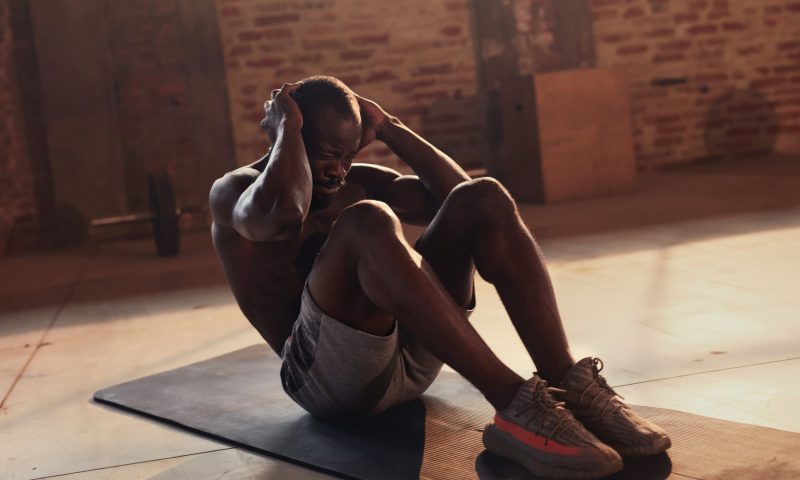 Whether you are just starting your fitness journey or you are experienced with exercise, you may still wonder, “How many days a week should I work out?” Having a weekly training regimen designed to work with your lifestyle while helping you reach your goals is essential!
Whether you are just starting your fitness journey or you are experienced with exercise, you may still wonder, “How many days a week should I work out?” Having a weekly training regimen designed to work with your lifestyle while helping you reach your goals is essential!
Although there isn’t a simple or single answer to how many days a week you should work out, we look at the various factors that affect how many days a week you should exercise and answer common questions about how to come up with a workout schedule below.
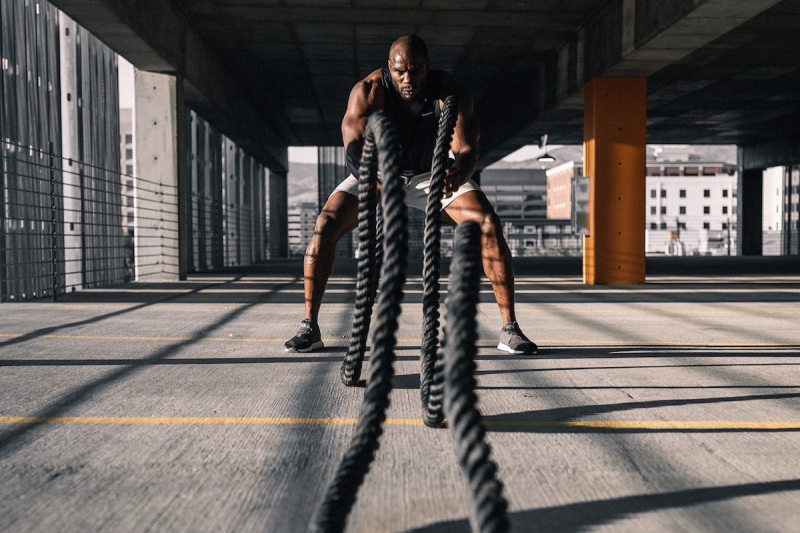
How many days a week should I work out?
Ultimately, the number of days per week you should work out depends on several factors, including the following:
- Type of exercise you are doing: High-impact activities, such as running and jumping, should usually be performed less frequently than low-impact exercises like cycling, rowing, or swimming because the risk of injury increases if you train too often with high-impact activities, particularly if you have a history of musculoskeletal injuries.
- Workout duration: The longer your workouts, the fewer days per week you need to exercise.
- Workout intensity: The more vigorous your workouts, the fewer workouts per week you may need to do.
- Fitness goals: Your health and fitness goals play a significant role in how many times a week you should work out. For example, suppose you’re just looking to do enough exercise to reduce your risk of heart disease and stroke. In that case, you will likely be able to work out fewer days per week than if you are trying to lose a significant amount of weight or train for a competitive athletic event.
- Age: Older adults may need more rest days in a week to recover after hard workouts. To prevent overtraining, it’s important to listen to your body and give your body a chance to recover.
- Health status: If you have a disease, musculoskeletal injury, or contraindications to vigorous physical activity, it might affect how often you should work out.
- Physical activity in your lifestyle outside of your exercise routine: Depending on your fitness and health goals, the more active you are in your daily life besides the exercise you get in your designated workouts, the fewer times per week you may need to work out. For example, someone working a construction job could get away with fewer workouts than someone sitting at a desk all day working as a secretary.
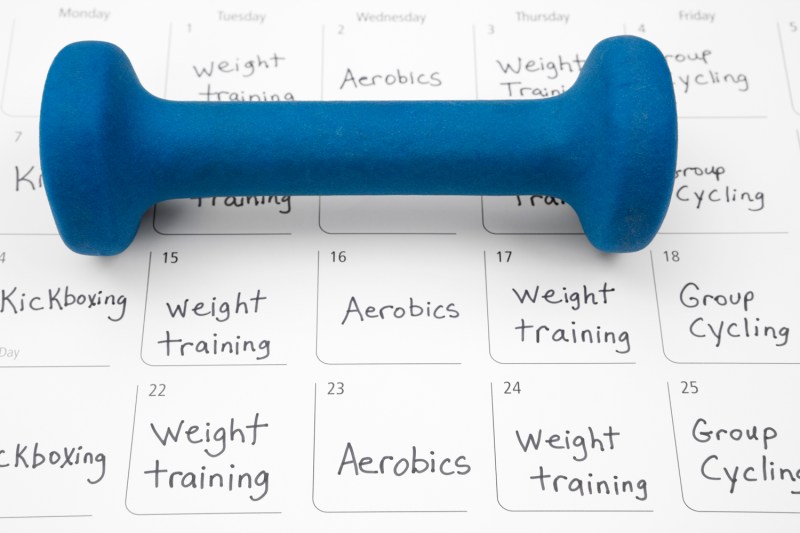
Different schedules for different goals
How many days a week should I work out for the best results?
In an ideal world, you should work out five to six days a week for the best results. These workouts should involve a mix of strength training and cardio exercise. The more variety you can include in terms of the types of exercise you do, the better.
How many days a week should I work out to build muscle?
Strength training three to four days a week is usually sufficient to build muscle. You can also work out four to five days a week and do muscle splits (chest/arms, back/abs, lower body, for example) on different days. If you want to build muscle, the intensity of your workouts is more important than the frequency of your workouts. For hypertrophy, lift heavy weights for fewer reps. Nutrition is equally important; ensure you are getting enough protein and total calories to support muscle growth.
How many days a week should I work out to lose weight?
To lose one pound of stored body fat, you have to create a caloric deficit of roughly 3,500 calories, which equates to 500 calories per day. This caloric deficit can be generated by consuming fewer calories, burning more calories, or a combination of both.
Exercise factors into the calories you burn. In general, however, most people find they lose weight more effectively through dietary adjustments. That said, exercising four to six days a week is typically sufficient for weight loss, with a goal of a minimum of 150 minutes of moderate-intensity exercise or 75 minutes of vigorous-intensity exercise per week.

Is it bad to work out every day?
It’s not necessarily “bad” to work out every day, but it’s also not necessarily “good.” Depending on the type of exercise you are doing, working out every day can increase your risk of injury, overtraining, and burnout. If you want to work out every day, the key to mitigating it is to vary the type of exercise you do.
For example, instead of running every day (which is a high-impact activity), run four days and do low-impact cross-training on other days. If your focus is strength training and you want to work out every day, do split routines instead of intense full-body workouts to give your muscles a chance to rest and rebuild.
However, it is usually advisable to take at least one day off per week to allow your body to fully rest and recover.
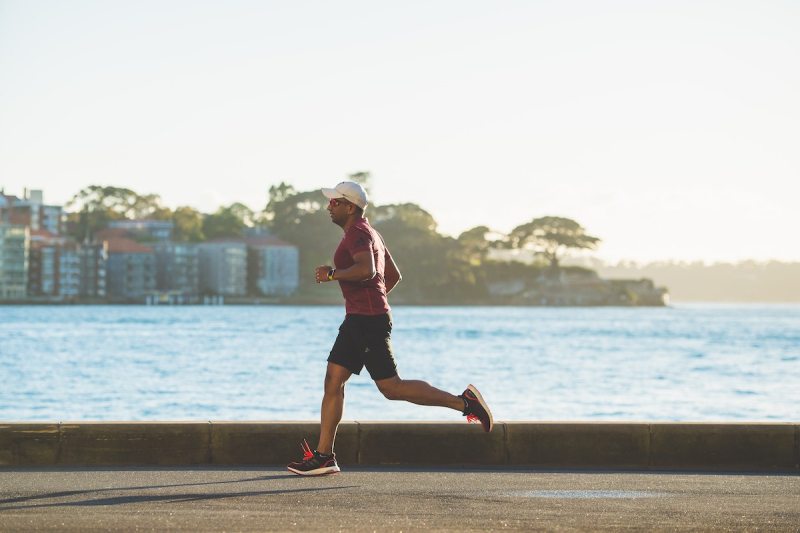
Is working out five days a week too much?
Not at all! Working out five days a week is typically ideal for health and fitness. Just be sure to keep your workouts varied so that you use different muscles and apply different stresses to your body.
Is working out 30 minutes a day, five days a week, enough?
Working out 30 minutes a day, five days a week can be enough, depending on your goals. If your goal is to exercise for health and longevity, 30 minutes a day for five days a week is perfect. According to the CDC, adults should aim for 150 minutes of moderate-intensity aerobic exercise or 75 minutes of vigorous-intensity aerobic exercise per week to reduce the risk of lifestyle diseases.
The recommended 150 minutes of moderate-intensity exercise works out to 30 minutes a day, five days a week. Note, however, that these CDC guidelines refer to cardio exercise, and they recommend two additional total-body strength training sessions per week. That said, if your workouts include a mix of both, or if you are closer to the “vigorous” intensity category, you are more than meeting the minimum recommendations for health by working out 30 minutes five days a week.
On the other hand, if you want to lose weight or improve performance, you may need to work out more.
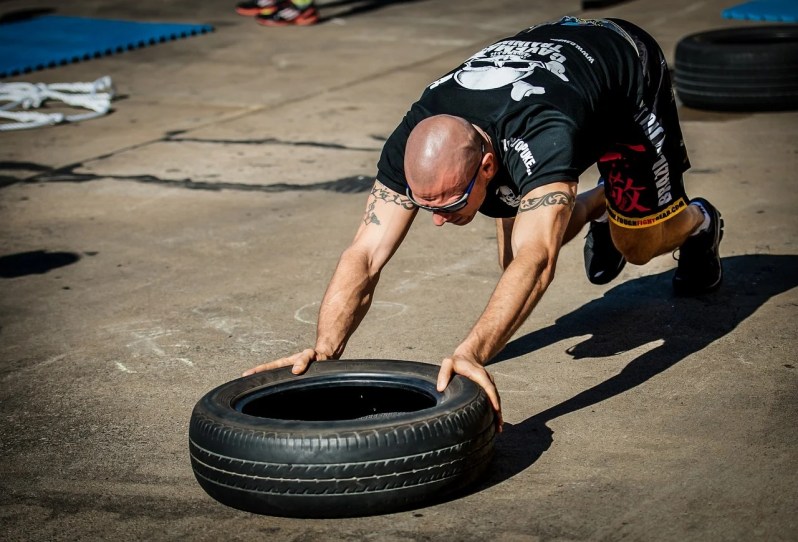
Are short workout sessions worth it?
We get it. There are some days when you simply don’t have time for even a 30-minute workout. That can lead to the thought, “I only have 10 minutes; it’s not worth it to work out.”
Yes, it is. Any workout, no matter the length, is going to have some benefit for health and fitness. While short workouts aren’t the best for achieving long-term goals like weight loss, they can be good for getting an exercise program kick-started, especially with someone who is living an overly sedentary lifestyle, as long as the intention is to make the workout times longer as the exercise program goes on. Also, when you are traveling, a quick workout of even just 10 minutes can be a great way to start your day and help you get focused.



